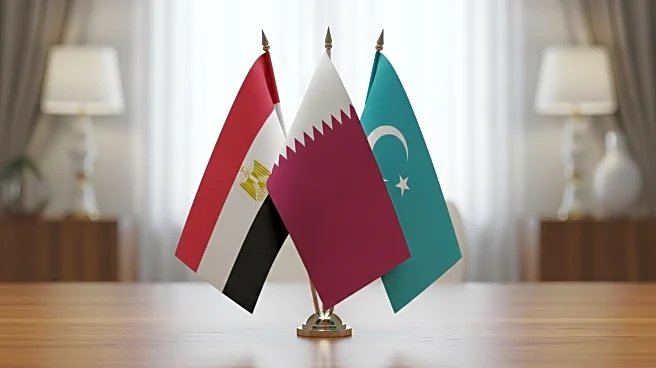What's Happening?
Egypt, Qatar, and Türkiye are actively working to persuade Hamas to accept President Trump's proposed peace plan for Gaza. The plan, which aims to end the nearly two-year conflict in the region, includes a cease-fire, an exchange of hostages, and a staged Israeli withdrawal from Gaza. Egyptian Foreign Minister Badr Abdelatty emphasized that Egypt, along with its partners, is committed to preventing the forced displacement of Palestinians, a concern raised by the plan. The proposal has been met with mixed reactions, with some stakeholders calling for further discussions on governance and security arrangements.
Why It's Important?
The acceptance of President Trump's peace plan by Hamas could significantly impact the geopolitical landscape of the Middle East. A resolution to the Gaza conflict would not only bring relief to the affected populations but also stabilize the region, potentially opening avenues for further diplomatic engagements. However, the plan's success hinges on addressing key issues such as governance and security, which remain contentious. The involvement of Egypt, Qatar, and Türkiye highlights the regional interest in achieving peace and the complexities of balancing international proposals with local realities.
What's Next?
Further discussions are expected to address the unresolved issues within the peace plan, particularly concerning governance and security. The international community will be closely monitoring the situation, with potential implications for U.S. foreign policy and regional alliances. The response from Hamas and other Palestinian factions will be crucial in determining the plan's viability and the future of peace efforts in Gaza.









